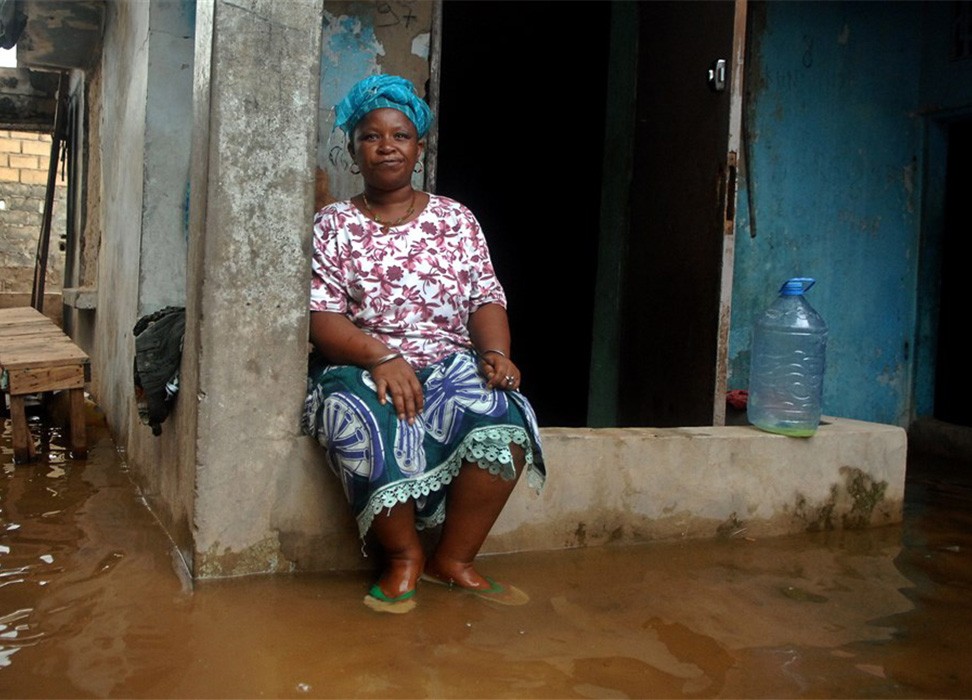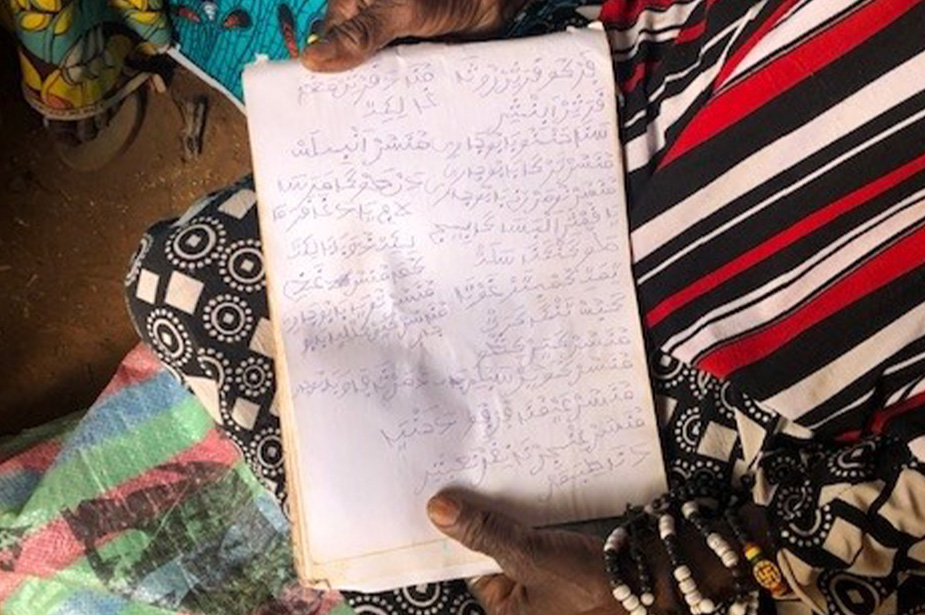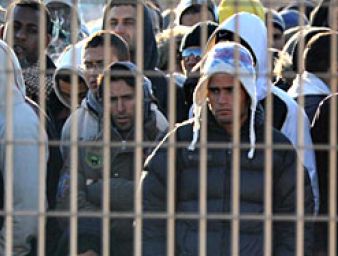New UN report puts a human face on climate crisis in the Sahel
16 November 2022

“The earth does not give us anything anymore,” said Rita*, a woman in Niger who lives in a community that relies on small-scale farming. “My husband left for Nigeria to find alternative sources of income. We are waiting for the rainy season to start so they can come back and start sowing seeds.”
Droughts have resulted in a reduction of their crops and in crop failure.
“They call us every day to ask whether the rain has come,” she said. “If it doesn’t start raining soon, they will not come back this season and we are left alone with the very hard task of cultivating the land.”
A new UN Human Rights report, released at COP 27, draws on community-based research in Mauritania, Niger, and Nigeria, to illustrate the human rights impacts of climate change in the context of migration and the human rights-based support that community members need for survival and dignity. The first report on this issue was presented during COP 26.
“The new report on climate change-related migration in the Sahel puts a human face on the climate crisis,” said Ben Schachter, Human Rights Officer at UN Human Rights. “It focusses on the real human suffering caused by climate change as well as the inspiring resilience of the people compelled to move.”
“The stories we tell about climate change matter,” he said highlighting the latest comic story in the UN Human Rights Climate Change and Migration series as another way to inspire collective, right-based climate action in the Sahel.
Focusing on three countries in the Sahel in Africa – a region encompassing Burkina Faso, Cameroon, Chad, Guinea, Mali, Mauritania, Niger, Nigeria, Senegal and the Gambia - the report highlights some of the key human rights challenges that are caused and exacerbated by climate change, showcases how these human rights risks act as drivers of migration and highlights the need for rights-based solutions.
“
By telling these stories, we hope to step away from the abstraction of the climate negotiations and return the focus to their ultimate objective – a stable climate that safeguards human health and welfare now and, in the future.
“
In Africa’s Sahel region, the human rights impact of climate change such as the rights to life, food, water, and health often have significant influence on decisions and experiences related to migration in the region, including amplifying vulnerabilities that will affect people as they migrate.
Struggling to survive
“Members of the communities that UN Human Rights engaged with have met climate induced harm and related migration in vulnerable situations with resilience and tenacity,” said Carolina Hernandez, UN Human Rights’ adviser on migration and human rights. “But far too often their voices and preferences are not taken into consideration in domestic and international policy.”
By engaging with communities to gather information on how their rights are affected by climate change and related migration, UN Human Rights were also able to support communities in expanding their human rights knowledge and their networks.
“We are expected to cultivate the land. It is hard work, under the burning sun, and yet we know we will not have sufficient crops to survive the rest of the year,” said Mira*, a woman who lives in a rural village in the region of Tahoua, Niger. “We want to learn something else, selling pastries, plait braids as hairdressers, cultivate kitchen gardens, have a small herd of goats.”
In a camp in Nigeria’s Benue State, Maya* describes the conditions she lives in after fleeing her home because of conflicts between farmers and herders, conflicts that many believe are linked to resource scarcity associated with climate change.
“Our tents are bad, and roofs are leaking,” she said. “There are insects, scorpions and snakes everywhere. The major challenges we face are lack of money, food, security, intolerance and quarrels among the different tribes and languages who are forced to cohabit together in a very small space.”
After having been compelled to move out from climate induced harm, migrants continue to face situations of vulnerability throughout their migration.

In a rural village in the region of Tahoua, Niger, a woman has been selected by her community to present to UN Human Rights on how climate change is impacting their lives. © OHCHR/Alice Ochsenbein
Sustainable solutions for all
The report chronicles the lessons learned through this human rights-based research, including the numerous human rights that are affected by climate change and related migration in the Sahel. It spotlights the legal obligations that all Governments have to meaningfully address human rights violations in the context of climate change-related migration. The report highlights the importance of empowering people to exercise their human rights and act as agents of change.
When migration is freely chosen and governed in a manner that is based in human rights, it can be an important adaptation strategy to the adverse impacts of climate change and may provide an opportunity to build resilience among individuals and communities while reducing exposure to situations of vulnerability and human rights violations.
The report establishes a human rights-based approach to climate change-related migration such as ensuring participation, inclusion, and access to justice for migrants.
The report also suggests providing effective and sustainable solutions for people and planet through climate change adaptation and mitigation actions and addressing climate change-related loss and damage. A solution is to provide adequate resources to affected communities, including through climate finance, recognizing that countries in the Sahel are disproportionately burdened by climate change despite having contributed very little to global emissions.
In taking a human rights-based approach to climate change-related migration, Hernandez added, it is also key to ensure pathways for safe and regular migration.
“Facilitating migration that is dignified and regular, both within the region and outside of it, may reduce human rights risks and allow for better outcomes for migrants and for countries and communities of departure, transit, and destination,” she said.
The report also recommended the engagement in human rights-based planning for sustainable development and climate resilience that incorporates climate change-related migration because it would allow for better access to rights prior to movement, when people move and after they move.
“Regional policies governing migration should fully account for the additional risk that climate change poses to the enjoyment of human rights for individuals and communities," said Robert Kotchani, UN Human Rights’ Regional Representative for West Africa. “Effective adaptation and mitigation policies must be human rights informed.”
*Names have been changed to protect individuals interviewed for the report.


